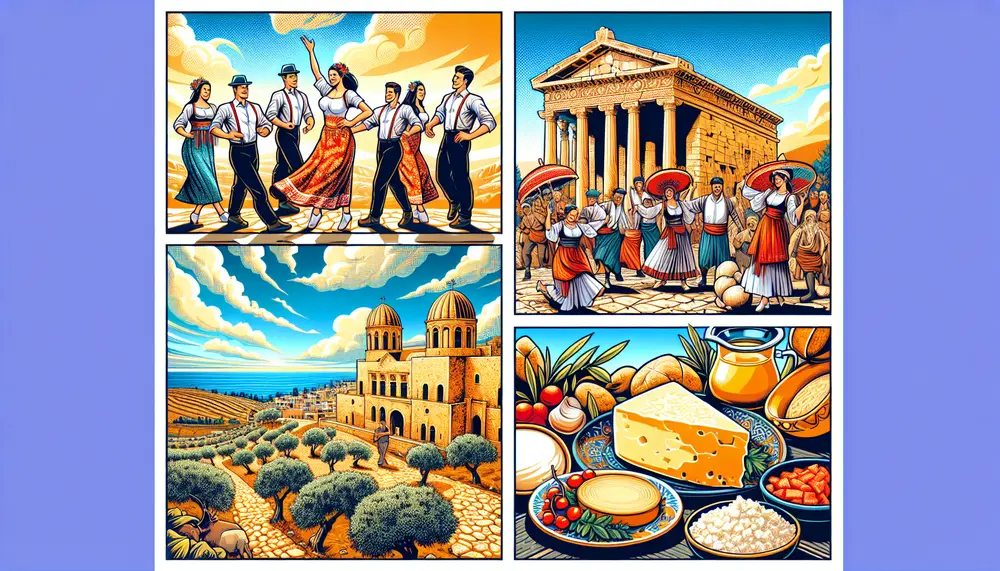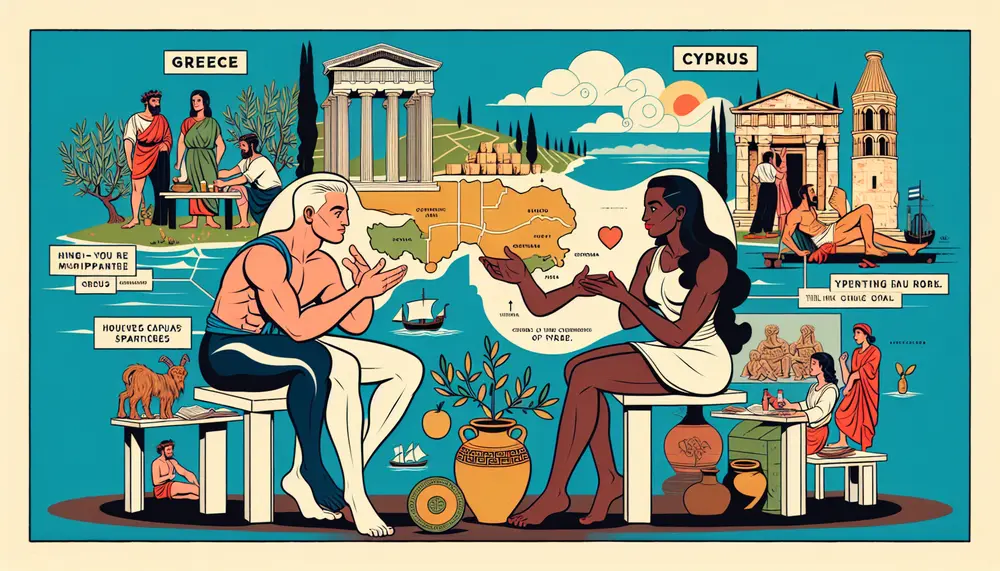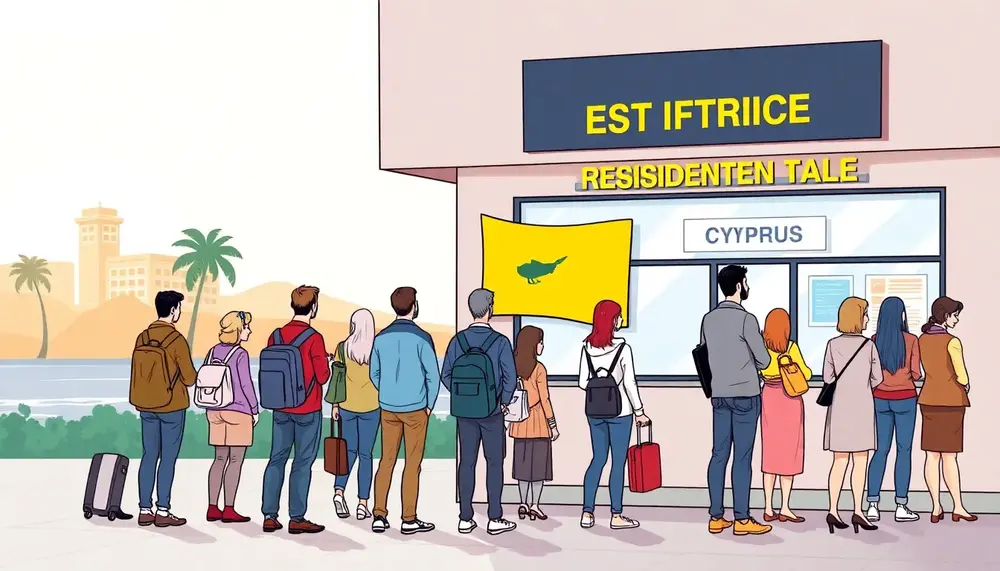Education
Education
Education in Cyprus
**Education** in Cyprus is a vital part of the island's culture and development. The education system in Cyprus is divided into several stages, ensuring that students receive a comprehensive and well-rounded education.
Primary Education
Primary education in Cyprus starts at the age of six and lasts for six years. It focuses on basic subjects like mathematics, science, and language arts. The goal is to provide a strong foundation for further learning.
Secondary Education
Secondary education is split into two cycles: Gymnasium and Lyceum. Gymnasium covers grades 7 to 9 and is compulsory. Lyceum, which includes grades 10 to 12, is optional but highly recommended for those who wish to pursue higher education.
Higher Education
Higher education in Cyprus includes universities and colleges. There are both public and private institutions offering a range of undergraduate and postgraduate programs. The University of Cyprus and Cyprus University of Technology are among the most prestigious.
Language of Instruction
The primary language of instruction in Cypriot schools is Greek. However, English is widely taught and used, especially in higher education and private schools. This bilingual approach helps students become proficient in both languages.
International Schools
Cyprus also hosts several international schools that follow different curricula, such as the British or American systems. These schools cater to expatriates and locals seeking an international education.
Adult Education
Adult education is also available in Cyprus, offering opportunities for lifelong learning. Various programs and courses are designed to help adults improve their skills and knowledge in different fields.
Conclusion
**Education** in Cyprus is diverse and inclusive, providing opportunities for students of all ages. From primary education to higher education and adult learning, Cyprus offers a robust educational framework that supports personal and professional growth.
Blog Posts with the term: Education

Understanding the import tax process from the UK to Cyprus is essential for accurate cost estimation and compliance with Cypriot regulations, especially post-Brexit. This guide covers various taxes like Customs Duty, VAT, and Excise Duty, highlighting their calculation methods and...

The article provides a comprehensive guide for Indians planning to visit Cyprus, detailing the types of visas available and the general and specific requirements needed for a successful application. It emphasizes understanding visa categories like short-stay, multiple-entry, long-stay, airport transit,...

Cyprus has two official languages, Greek and Turkish, reflecting its diverse cultural heritage and historical influences. While Greek is predominantly spoken in the south and Turkish in the north, both languages coexist alongside various dialects and minority languages that contribute...

Cyprus, an island in the Eastern Mediterranean, has a complex history marked by division due to historical events and nationalist movements among Greek and Turkish Cypriots. The 1974 conflict escalated with a coup d'état followed by Turkey's military intervention, leading...

The Cyprus Migration Department manages immigration processes, including visas, residence permits, and citizenship requests. This guide outlines steps for preparing documents, visiting the department, and filling out application forms to ensure a smooth process....

Cyprus, an island in the Mediterranean, features a rich cultural tapestry influenced by Greek and Turkish traditions due to its strategic location and diverse history. The guide explores various aspects of Cypriot culture including festivals, cuisine, religious practices, and artistic...

Cyprus offers a favorable tax environment for stock investors, featuring low corporate tax rates, extensive double taxation treaties, and exemptions on capital gains from stocks. Understanding the basic principles of Cyprus' tax system—including corporate taxes, dividend income rules, and Special...

The relationship between Cyprus and Greece is deeply rooted in shared history, language, religion, and traditions. From ancient myths to modern political alliances, their connection has shaped both nations' identities and continues to foster strong cultural and economic ties today....

Cyprus boasts a rich and diverse culture shaped by various historical influences, including Greek, Phoenician, Roman, Byzantine, Ottoman, and British. The island's cultural identity is reflected in its language diversity (Greek Cypriot and Turkish Cypriot), religious practices (Orthodox Christianity and...

The article explores the rich cultural heritage of Cyprus through its traditional clothing, highlighting regional variations in female attire and the significance of bridal costumes. It delves into urban versus rural styles, emphasizing how these garments reflect social status, practicality...

Cyprus is uniquely divided into the internationally recognized Republic of Cyprus in the south and the Turkish Republic of Northern Cyprus, only acknowledged by Turkey. This division reflects contrasting political systems, cultures, and economies while preserving distinct identities shaped by...

This guide provides comprehensive information on obtaining a Cyprus visa, detailing who needs one, the types of visas available, required documents, and the application process. It covers various categories such as tourist, business, student, work, transit, and family reunification visas...

The Cyprus dating culture blends modern Western practices with deep-rooted cultural norms, emphasizing family involvement and traditional roles. Understanding these customs can help navigate relationships effectively, balancing respect for elders and formal introductions with the influence of global trends like...

The Cyprus Yellow Slip is a crucial document for EU citizens wishing to reside in Cyprus, granting residency rights similar to Cypriot citizens and facilitating employment, healthcare access, education enrollment, banking services, and family unification....
